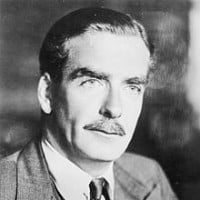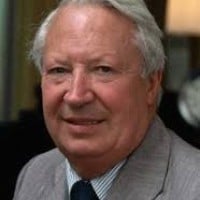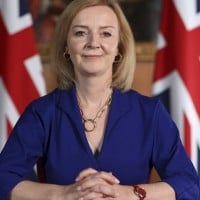Top 10 Greatest British Prime Ministers After World War I
Although my personal Labour leaning opinions may differ slightly, I have chosen to make a list based on what I believe to be a ranking of the British leaders by accomplishments and how effective they were.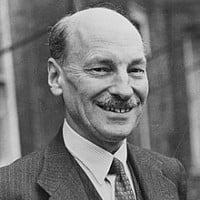
Clement Attlee was a British politician who served as the Prime Minister of the United Kingdom from 1945 to 1951. He led the Labour Party to a landslide victory in the 1945 general election, and his government went on to introduce significant reforms that transformed British society.
Here are some of Attlee's most notable accomplishments:
Creation of the National Health Service (NHS): Attlee's government created the NHS in 1948, providing free healthcare for all Britons. This was a significant step towards socialized medicine and a major achievement for the Labour Party.
Welfare state: Attlee's government introduced a range of social welfare programs, including unemployment benefits, family allowances, and a national pension scheme. These measures helped to reduce poverty and improve living standards for many British citizens.
Nationalization of key industries: Attlee's government nationalized several major industries, including coal, gas, electricity, and railways. This allowed the government to exercise greater control over the economy and ensure that key industries were run in the interests of the public.
Decolonization: Attlee's government oversaw the decolonization of India and the granting of independence to many other British colonies. This was a major step towards the end of the British Empire and helped to promote democracy and self-determination around the world.
Education: Attlee's government introduced free secondary education for all children in 1944, which helped to promote social mobility and ensure that every child had access to a basic education.
Overall, Attlee's government introduced a range of policies that helped to reduce poverty, improve living standards, and promote social justice in the United Kingdom. His legacy continues to be felt today, and he is widely regarded as one of the most significant British Prime Ministers of the 20th century.
 Sir Winston Leonard Spencer-Churchill was a British statesman who was the Prime Minister of the United Kingdom from 1940 to 1945 and again from 1951 to 1955. Churchill was also an officer in the British Army, a historian, and a writer.
Sir Winston Leonard Spencer-Churchill was a British statesman who was the Prime Minister of the United Kingdom from 1940 to 1945 and again from 1951 to 1955. Churchill was also an officer in the British Army, a historian, and a writer. Winston Churchill was a British politician and statesman who is widely regarded as one of the most influential figures of the 20th century. He served as the Prime Minister of the United Kingdom twice, from 1940 to 1945 and from 1951 to 1955. Here are some of Churchill's most notable accomplishments:
Leadership during World War II: Churchill is perhaps best known for his leadership of Britain during World War II. He inspired the British people with his speeches and his determination to resist Nazi Germany, and he played a key role in forging the alliance that ultimately defeated the Axis powers.
Diplomacy: Churchill was also an accomplished diplomat who played a key role in shaping the post-war world. He was instrumental in the formation of the United Nations and worked to maintain the alliance between the US and the UK during the early years of the Cold War.
Domestic reforms: Churchill's government introduced several significant domestic reforms, including the National Insurance Act of 1946, which established a comprehensive system of social security, and the Education Act of 1944, which introduced free secondary education for all children.
Literary accomplishments: Churchill was also a prolific writer and historian, and he won the Nobel Prize for Literature in 1953. His works include his memoirs of World War II, "The Second World War," and his acclaimed history of the English-speaking peoples.
Iron Curtain Speech: Churchill gave a famous speech in 1946, known as the "Iron Curtain" speech, in which he warned of the dangers of Soviet expansionism and the division of Europe into Eastern and Western blocs. This speech is seen as a defining moment in the early years of the Cold War.
Overall, Churchill is widely regarded as one of the most important figures of the 20th century. His leadership during World War II and his contributions to British and international politics have had a lasting impact on the world.
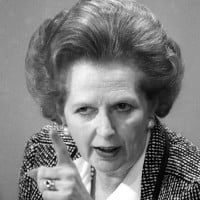 Margaret Hilda Thatcher, Baroness Thatcher, was a British stateswoman and politician who was the Prime Minister of the United Kingdom from 1979 to 1990 and the Leader of the Conservative Party from 1975 to 1990. She was the longest-serving British Prime Minister of the 20th century and was the first... read more
Margaret Hilda Thatcher, Baroness Thatcher, was a British stateswoman and politician who was the Prime Minister of the United Kingdom from 1979 to 1990 and the Leader of the Conservative Party from 1975 to 1990. She was the longest-serving British Prime Minister of the 20th century and was the first... read more Margaret Thatcher was a British politician who served as the Prime Minister of the United Kingdom from 1979 to 1990. She was the first woman to hold the position, and her policies had a profound impact on British society and the world at large. Here are some of her most notable accomplishments:
Economic reform: Thatcher's government introduced a range of economic reforms, including the privatization of state-owned industries, deregulation of financial markets, and reductions in government spending. These policies helped to modernize the British economy and promote entrepreneurship and competition.
Falklands War: In 1982, Thatcher's government successfully repelled an Argentine invasion of the Falkland Islands, a British overseas territory. The war boosted Thatcher's popularity and cemented her reputation as a strong leader.
Education reform: Thatcher's government introduced a range of education reforms, including the introduction of standardized tests and the creation of academies, which are publicly-funded schools with more autonomy than traditional state schools.
Anti-union legislation: Thatcher's government passed several laws to restrict the power of trade unions, which were seen as a threat to economic growth and stability. These laws led to a decline in union membership and helped to reduce labor unrest.
Cold War diplomacy: Thatcher was a key ally of US President Ronald Reagan during the Cold War, and she worked to promote cooperation between the US and the UK in confronting the Soviet Union.
Overall, Thatcher's government introduced a range of policies that helped to transform British society and promote economic growth and prosperity. Her legacy continues to be felt today, and she remains a controversial figure who is admired by some and criticized by others.
 Anthony Charles Lynton Blair, originally known as Anthony Blair, but later as Tony Blair, is a British Labour Party politician, who served as the Prime Minister of the United Kingdom, from 1997 to 2007. From 1983 to 2007, Blair was the Member of Parliament for Sedgefield, and from 1994 to 2007, Blair... read more
Anthony Charles Lynton Blair, originally known as Anthony Blair, but later as Tony Blair, is a British Labour Party politician, who served as the Prime Minister of the United Kingdom, from 1997 to 2007. From 1983 to 2007, Blair was the Member of Parliament for Sedgefield, and from 1994 to 2007, Blair... read more Tony Blair was a British politician who served as the Prime Minister of the United Kingdom from 1997 to 2007. He led the Labour Party to three consecutive general election victories and introduced a range of significant policies during his time in office. Here are some of his most notable accomplishments:
Devolution: Blair's government introduced devolution to Scotland and Wales, giving those regions greater autonomy over their own affairs. This was a significant step towards decentralization and helped to promote a sense of national identity in those regions.
Peace in Northern Ireland: Blair played a key role in the peace process in Northern Ireland, which led to the Good Friday Agreement in 1998. This agreement brought an end to decades of sectarian violence in the region and paved the way for greater political stability and reconciliation.
Social reform: Blair's government introduced a range of social reforms, including the introduction of a minimum wage, increased funding for education and healthcare, and the introduction of civil partnerships for same-sex couples.
Foreign policy: Blair was a strong supporter of the US-led War on Terror and played a key role in the military intervention in Iraq in 2003. He also played an active role in European politics, promoting greater integration and cooperation between European nations.
Economic growth: Blair's government oversaw a period of sustained economic growth, with low inflation and low unemployment rates. This helped to create a more stable and prosperous economy and improved living standards for many British citizens.
Overall, Blair's government introduced a range of policies that helped to modernize British society, promote social justice and equality, and promote international cooperation. His legacy continues to be debated, however, particularly in relation to his foreign policy decisions and his handling of the Iraq War.
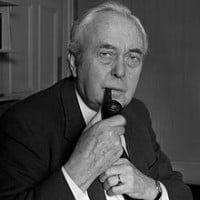
Harold Wilson was a British politician who served as the Prime Minister of the United Kingdom twice, from 1964 to 1970 and from 1974 to 1976. Here are some of his most notable accomplishments:
Social reform: Wilson's government introduced a range of social reforms, including the legalization of abortion and homosexuality, and the abolition of the death penalty for most crimes.
Economic reform: Wilson's government introduced a range of economic reforms, including the creation of a Department of Economic Affairs to promote economic growth, and the introduction of the Prices and Incomes Act to control inflation.
Education reform: Wilson's government introduced a range of education reforms, including the creation of the Open University to provide distance learning opportunities, and the raising of the school leaving age to 16.
Decolonization: Wilson's government oversaw the decolonization of several British colonies, including Nigeria, Kenya, and Rhodesia (now Zimbabwe). This was a significant step towards promoting self-determination and independence for former colonial territories.
Nuclear disarmament: Wilson was a strong supporter of nuclear disarmament and worked to reduce the UK's reliance on nuclear weapons. He negotiated the Non-Proliferation Treaty in 1968, which helped to reduce the global nuclear threat.
Overall, Wilson's government introduced a range of policies that helped to modernize British society and promote social justice and equality. His government's economic policies, however, were less successful, and his handling of the economy was criticized by many.
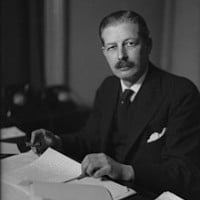
Harold Macmillan was a British politician who served as the Prime Minister of the United Kingdom from 1957 to 1963. Here are some of his most notable accomplishments:
Economic growth: Macmillan's government oversaw a period of sustained economic growth, with low unemployment rates and rising living standards. This was known as the "post-war boom" and helped to create a more prosperous society.
Decolonization: Macmillan oversaw the decolonization of several British colonies, including Ghana, Cyprus, and Malaya. This was a significant step towards promoting self-determination and independence for former colonial territories.
European integration: Macmillan was a strong supporter of European integration and worked to strengthen ties between the UK and other European nations. He was instrumental in the creation of the European Economic Community (EEC), which later became the European Union.
Nuclear disarmament: Macmillan was a strong supporter of nuclear disarmament and worked to reduce the UK's reliance on nuclear weapons. He negotiated the Partial Test Ban Treaty in 1963, which banned nuclear testing in the atmosphere, underwater, and in outer space.
Housing: Macmillan's government introduced a range of housing policies, including the introduction of council housing and the creation of new towns to help address the housing shortage in post-war Britain.
Overall, Macmillan's government introduced a range of policies that helped to modernize British society, promote economic growth and stability, and promote international cooperation. His legacy continues to be felt today, particularly in relation to his support for European integration and his work towards nuclear disarmament.
Stanley Baldwin was a British politician who served as the Prime Minister of the United Kingdom three times, from 1923 to 1924, from 1924 to 1929, and from 1935 to 1937. Here are some of his most notable accomplishments:
Economic stability: Baldwin's government oversaw a period of economic stability, with low inflation rates and low unemployment rates. This helped to create a more stable and prosperous economy and improved living standards for many British citizens.
Social reform: Baldwin's government introduced a range of social reforms, including the Widows', Orphans', and Old Age Contributory Pensions Act in 1925, which provided pensions for those over the age of 65.
Disarmament: Baldwin was a strong supporter of disarmament and worked to reduce the UK's military spending. He played a key role in the negotiations for the Treaty of Locarno in 1925, which helped to reduce tensions in Europe.
Imperial preference: Baldwin was a strong supporter of imperial preference, which promoted trade between the UK and its colonies. This helped to strengthen economic ties within the British Empire.
Education reform: Baldwin's government introduced a range of education reforms, including raising the school leaving age to 14 and the introduction of the Hadow Report in 1926, which promoted a more child-centered approach to education.
Overall, Baldwin's government introduced a range of policies that helped to modernize British society, promote economic growth and stability, and foster international cooperation. His legacy continues to be debated, particularly in relation to his handling of the rise of fascism in Europe in the 1930s.
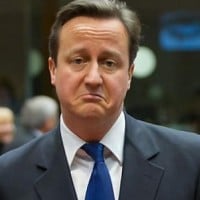 David William Donald Cameron is a British politician who is at present the Prime Minister of the United Kingdom, Leader of its Conservative Party, and Member of Parliament for the Oxfordshire constituency of Witney.
David William Donald Cameron is a British politician who is at present the Prime Minister of the United Kingdom, Leader of its Conservative Party, and Member of Parliament for the Oxfordshire constituency of Witney. David Cameron was a British politician who served as the Prime Minister of the United Kingdom from 2010 to 2016. Here are some of his most notable accomplishments:
Economic reforms: Cameron's government introduced a range of economic reforms, including the reduction of the budget deficit and the creation of the Office for Budget Responsibility to promote greater fiscal transparency.
Social reform: Cameron's government introduced a range of social reforms, including the legalization of same-sex marriage and the introduction of the Troubled Families Programme to support vulnerable families.
Health reform: Cameron's government introduced a range of health reforms, including the creation of clinical commissioning groups to give doctors more control over local health services.
Education reform: Cameron's government introduced a range of education reforms, including the creation of free schools and academies to promote greater school autonomy.
Foreign policy: Cameron's government played a key role in international affairs, including the NATO intervention in Libya in 2011 and the UK's involvement in the Syrian civil war.
Overall, Cameron's government introduced a range of policies that aimed to promote economic growth and stability, social justice and equality, and greater autonomy for schools and local health services. His legacy continues to be debated, particularly in relation to his handling of the Brexit referendum in 2016 and the subsequent political fallout.
 Alexander Boris de Pfeffel Johnson is an English politician, popular historian, and journalist who has served as Prime Minister of the United Kingdom from 2019 to 2022 and Member of Parliament for Uxbridge and South Ruislip since 2015. Johnson previously served as the MP for Henley from 2001 until 2008,... read more
Alexander Boris de Pfeffel Johnson is an English politician, popular historian, and journalist who has served as Prime Minister of the United Kingdom from 2019 to 2022 and Member of Parliament for Uxbridge and South Ruislip since 2015. Johnson previously served as the MP for Henley from 2001 until 2008,... read more Boris Johnson is a British politician who became the Prime Minister of the United Kingdom in 2019. Here are some of his most notable accomplishments:
COVID-19 response: Johnson's government led the UK's response to the COVID-19 pandemic, including the procurement of vaccines and the implementation of lockdown measures. The success of the vaccination program has been widely praised, although the handling of the pandemic in its early stages has been criticized.
Brexit: Johnson's government oversaw the UK's withdrawal from the European Union, which was a significant achievement for his administration. The deal negotiated with the EU has been criticized by some for creating trade barriers, particularly for Northern Ireland.
Infrastructure investment: Johnson's government has announced plans to invest heavily in infrastructure, including new rail links, road improvements, and the rollout of high-speed broadband.
Education reform: Johnson's government has introduced a range of education reforms, including the introduction of new technical qualifications and the creation of new "free schools" to promote greater school autonomy.
Climate change: Johnson's government has committed to reducing the UK's carbon emissions to net zero by 2050 and has introduced a range of measures to promote renewable energy and sustainable transport.
Overall, Johnson's government has introduced a range of policies that aim to promote economic growth and stability, social justice and equality, and sustainable development. His handling of the COVID-19 pandemic and Brexit, however, has been controversial and his legacy remains to be seen.
 James Gordon Brown is a British Labour Party politician who was the Prime Minister of the United Kingdom and Leader of the Labour Party from 2007 until 2010. He previously served as Chancellor of the Exchequer in the Labour Government from 1997 to 2007. Brown was a Member of Parliament from 1983 to... read more
James Gordon Brown is a British Labour Party politician who was the Prime Minister of the United Kingdom and Leader of the Labour Party from 2007 until 2010. He previously served as Chancellor of the Exchequer in the Labour Government from 1997 to 2007. Brown was a Member of Parliament from 1983 to... read more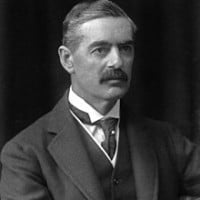
Neville Chamberlain was a British politician who served as the Prime Minister of the United Kingdom from 1937 to 1940. Here are some of his most notable accomplishments:
Chamberlain is most well-known for his policy of appeasement towards Nazi Germany in the lead-up to World War II. This policy involved making concessions to Hitler in order to avoid conflict.
Despite his policy of appeasement, Chamberlain recognized the need to rearm the UK in the face of the growing threat from Nazi Germany. He oversaw a significant increase in military spending and the expansion of the British armed forces.
Chamberlain's government introduced a range of social reforms, including the Social Security Act in 1938, which provided unemployment and sickness benefits.
Chamberlain played a key role in international affairs, including negotiations with the Soviet Union and efforts to establish closer ties with the United States.
Chamberlain's government introduced a range of domestic policies, including the establishment of the Ministry of Health and the creation of the Central Office of Information.
Overall, Chamberlain's legacy is largely overshadowed by his policy of appeasement and the failure to prevent the outbreak of World War II. Despite this, his government did introduce a range of significant social and economic reforms that helped to modernize British society.
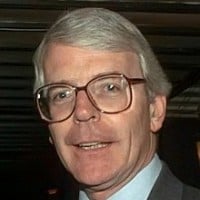
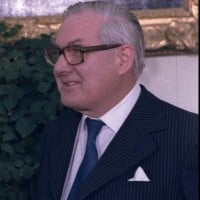
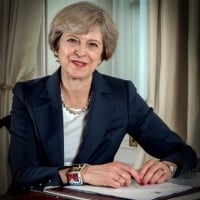 Theresa Mary May, MP served as Prime Minister of the United Kingdom and Leader of the Conservative Party from July 2016 to July 2019, when Boris Johnson became PM. She has been a Member of Parliament for Maidenhead since 1997. May identifies as a one-nation conservative and has been characterised as... read more
Theresa Mary May, MP served as Prime Minister of the United Kingdom and Leader of the Conservative Party from July 2016 to July 2019, when Boris Johnson became PM. She has been a Member of Parliament for Maidenhead since 1997. May identifies as a one-nation conservative and has been characterised as... read more